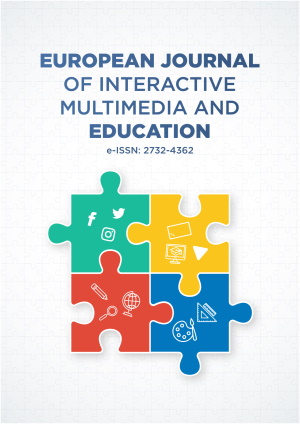Abstract
This article will attempt to explain Japan’s policy adoption regarding education during the coronavirus pandemic from the perspective of technology adoption and with the intention of adhere to the ideals of a knowledge society, while at the same time, exploring the probable causes and consequences of these decisions and the possible repercussions in the Japanese youth.
License
This is an open access article distributed under the Creative Commons Attribution License which permits unrestricted use, distribution, and reproduction in any medium, provided the original work is properly cited.
Article Type: Brief Report
EUR J INTERACT MULTIMED ED, Volume 4, Issue 1, January 2023, Article No: e02301
https://doi.org/10.30935/ejimed/12692
Publication date: 01 Jan 2023
Online publication date: 08 Dec 2022
Article Views: 2018
Article Downloads: 1193
Open Access References How to cite this article
 Full Text (PDF)
Full Text (PDF)